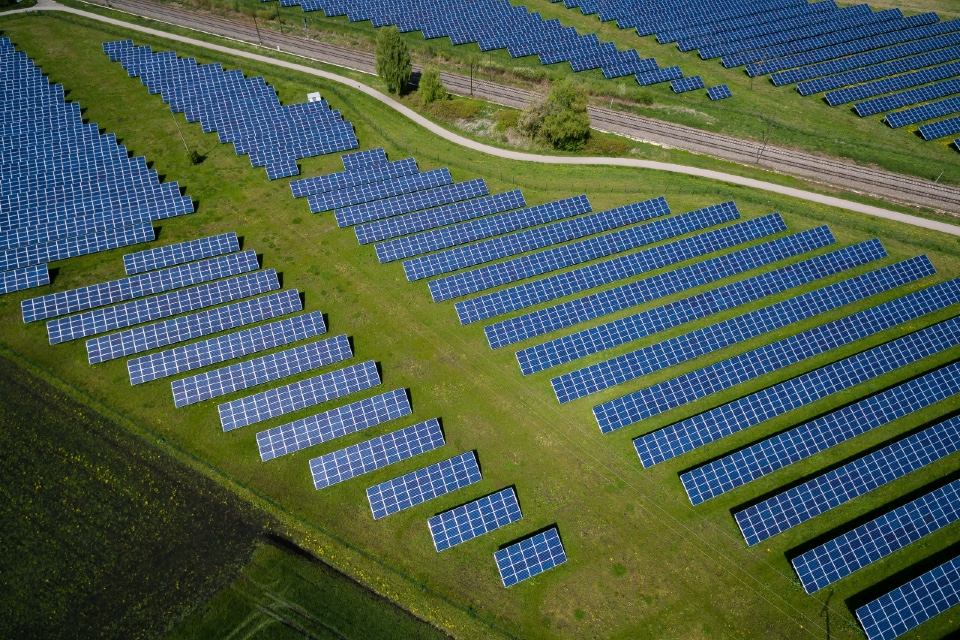New global alliance seeks to propel clean energy in emerging economies
https://energymanagementsummit.co.uk/wp-content/uploads/2024/01/clean-energy-andreas-gucklhorn-Ilpf2eUPpUE-unsplash.jpg 960 640 Stuart O'Brien Stuart O'Brien https://secure.gravatar.com/avatar/81af0597d5c9bfe2231f1397b411745a?s=96&d=mm&r=gThe World Economic Forum has launched of a new alliance to provide a platform for developing economies to raise awareness about their clean energy needs, share best practices and sustainably accelerate their energy transitions.
The Network to Mobilize Clean Energy Investment for the Global South is made up of 20+ CEOs and government ministers, including from across Colombia, Egypt, India, Japan, Malaysia, Morocco, Namibia, Nigeria, Norway, Kenya and South Africa. The network will provide a collaborative space for its members to accelerate clean energy capital solutions in emerging market contexts – through innovative policies, new business models, de-risking tools and finance mechanisms – and exchange best practices for attracting sustainable flows of clean energy capital.
“Accelerating the clean energy transition is imperative to address the climate emergency, but current investment levels remain far below the scale and pace of change needed,” said Roberto Bocca, Head of the World Economic Forum’s Centre for Energy and Materials. “Unlocking this financing today is not only a key first step towards a secure and equitable energy system tomorrow, but represents a clear opportunity for businesses, as emerging economies account for the lion’s share of the global population.”
The Forum also released a new Forum report today, Building Trust through an Equitable and Inclusive Energy Transition, that outlines a framework to guide policy-makers and business leaders from the energy sector towards a just, equitable and inclusive energy transition, particularly in developing economies, which account for less than one-fifth of global clean energy investments. Its findings make clear that neglecting equity, justice and inclusivity could severely delay the transition, making it crucial to address these aspects holistically at all levels – local, national and global.
The overall annual investment in clean energy in the Global South needs to triple from $770 billion currently to $2.2-2.8 trillion by the early 2030s. While recent spending has increased, the report finds that it remains concentrated in a few countries and sectors, with over 90% of investment growth having occurred in advanced economies and China since 2021.
The network will be chaired by two global leaders, working closely with the World Economic Forum to shape its activities: Rania A. Al-Mashat, Minister of International Cooperation of Egypt, and Samaila Zubairu, President and Chief Executive Officer of the Africa Finance Corporation.
“The network will play a crucial role in bringing together public and private players to pinpoint investment needs, breaking down barriers, and unlocking practical solutions for a just, equitable and sustainable energy transition in the Global South,” said Al-Mashat. “This will be a new space for emerging economies to exchange best practices and lessons learned, and foster collaboration around value chain strategies, regulatory policies, and investment mechanisms. These issues and more are addressed elaborately in the “Sharm El-Sheikh Guidebook for Just financing”, launched during COP27 by the Egyptian Ministry of International Cooperation, with 100+ partners, which also introduces for the first time a definition for just financing.”
As well as galvanizing efforts around the energy transition, the new network highlights the growing importance and untapped potential of emerging nations to the global economy. Seizing these opportunities presents a dual opportunity, as it could help mitigate risks in emerging markets while also ensuring sustainable growth and positive societal impacts.
“The perception of high risk has deterred investments in emerging markets, particularly in Africa, over the years; yet, from where I sit, there is no shortage of de-risking instruments and bankable projects that not only deliver profitable returns but also accelerate development impact,” said Zubairu. “Mobilizing investment for the energy transition is now more urgent. It is time for us to shift the narrative surrounding the financing of clean energy in the Global South from an aid case to a viable investment opportunity, without which we will not reach global net zero.”
The network will also be critical in enabling clean energy finance and investment at the local level. In this context, a Colombia-focused workstream was announced today. The initiative will convene a multistakeholder working group focused on increasing capital for Colombia’s energy transition.
Photo by Andreas Gücklhorn on Unsplash











